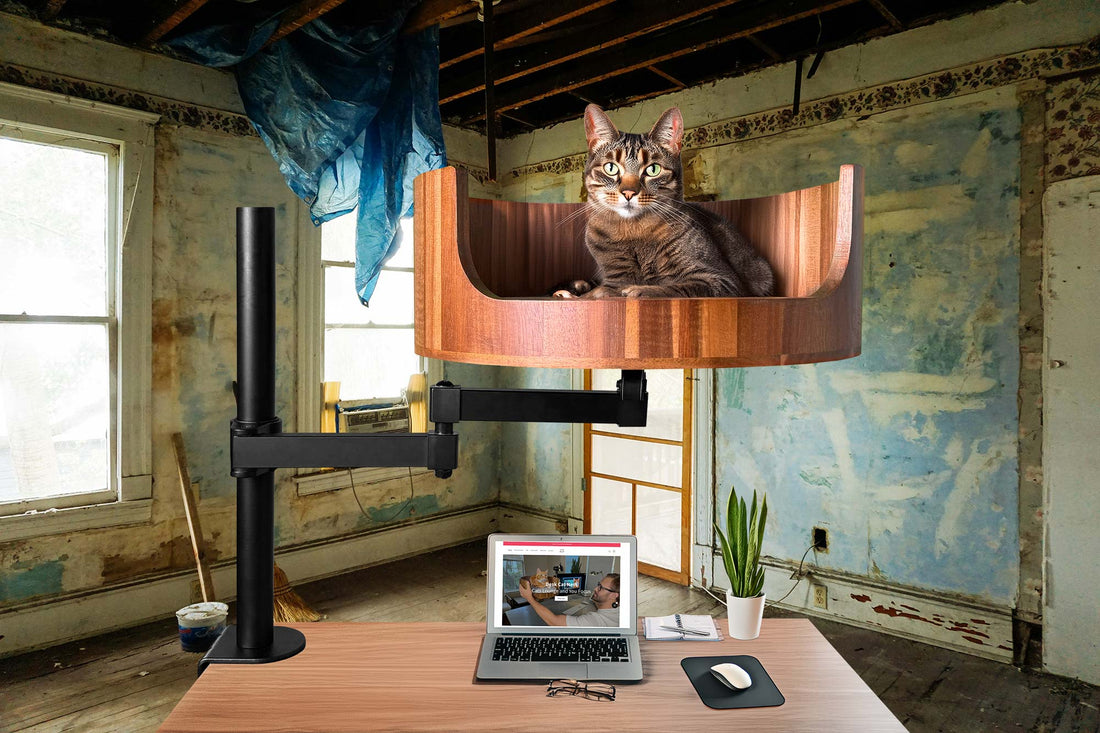
My Cat Ate a Spider: What to Do Next
Share
If you've ever found yourself in the horrifying situation of witnessing your precious feline friend devouring a spider, you are not alone. Cats are natural hunters, and their instincts can sometimes lead them to snack on insects that they come across. However, it's important to know what steps to take after your cat has ingested a spider to ensure their health and well-being.
In this article, we will explore the potential risks of a cat eating a spider, including possible reactions and symptoms to look out for. We will also discuss what to do if you suspect your cat has consumed a spider, including when to contact your veterinarian for further guidance. Additionally, we will provide some tips on how to prevent your cat from indulging in these creepy crawlies in the future. So if you find yourself in this unsettling predicament, fear not - we have you covered with expert advice on how to handle the situation and keep your pet safe.
1. Monitor your cat for any signs of illness or distress after consuming a spider.
2. Contact your veterinarian immediately if you notice any abnormal behavior or symptoms.
3. Understand that most spiders are not toxic to cats, but some can cause adverse reactions.
4. Keep spiders out of reach to prevent future incidents.
5. Consider providing safe, alternative forms of entertainment for your cat to satisfy their natural instincts.
Identifying the Spider
If your cat has eaten a spider, it's important to first identify the type of spider it was. Some spiders are harmless to cats, while others can be poisonous and cause health issues. Look for any remaining parts of the spider or webs in the area where your cat was found. Take a picture if possible to show to a vet for further identification.
Monitoring Your Cat's Behavior
After your cat has eaten a spider, it's crucial to monitor their behavior closely. Keep an eye out for any signs of distress such as vomiting, diarrhea, lethargy, or changes in appetite. If you notice any unusual behavior, contact your vet immediately for guidance on potential next steps.
Visiting the Vet
If you suspect that the spider your cat ate was poisonous or if your cat is displaying concerning symptoms, it's best to err on the side of caution and visit the vet. Your vet can conduct a thorough examination and provide the necessary treatment to ensure your cat's well-being. In some cases, they may induce vomiting or administer medication to counteract the effects of the spider's venom.
Preventative Measures
To prevent your cat from eating spiders in the future, consider implementing measures to keep spiders away from your home. Regularly dust and vacuum to eliminate spider webs and eggs, seal cracks and crevices where spiders may enter, and use pet-safe spider repellents. Additionally, provide your cat with plenty of toys and activities to keep them entertained and less likely to hunt for spiders.
Frequently Asked Questions
What should I do if my cat ate a spider?
If your cat has ingested a spider, monitor them closely for any signs of illness or discomfort. It's best to contact your veterinarian for guidance on whether further treatment is necessary.
Is it dangerous for cats to eat spiders?
While most spiders are not toxic to cats, some can be harmful. It's important to seek advice from a vet if your cat has eaten a spider, especially if you are unsure of the type of spider.
How can the Desk Cat Nest help with my cat eating spiders?
The Desk Cat Nest provides a cozy and safe space for your cat to relax and play, reducing their likelihood of hunting and eating spiders. It can also give them a sense of security and comfort, minimizing their stress levels.
Can I train my cat to stop eating spiders?
Yes, you can train your cat to not eat spiders by providing them with alternative toys and activities to keep them entertained. Rewarding them for playing with these toys instead of hunting spiders can help reinforce desirable behavior.
Are there any tips for preventing spiders in my home?
Regularly cleaning and vacuuming your home can help eliminate spiders and their prey. Sealing cracks and gaps in walls and windows can also prevent spiders from entering your living space.
In conclusion, investing in a Desk Cat Bed is a valuable choice for cat owners whose feline friends have a tendency to hunt and consume spiders. Providing a comfortable and safe resting place for your cat can help alleviate their natural instinct to chase after potential prey, minimizing the risk of encounters with harmful insects. With its cozy design and elevated platform, the Desk Cat Bed offers a secure and inviting space for your cat to relax and unwind, ultimately promoting their overall well-being and keeping them away from potential hazards. Make the smart choice to protect your pet and consider adding a Desk Cat Bed to your home today.



















































